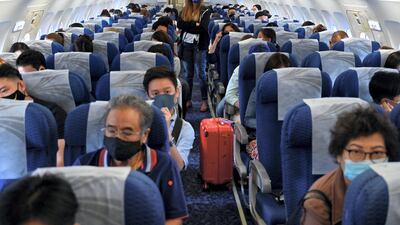International tourists are particularly vulnerable to virulent strains of drug-resistant bacteria because of the amount of time they spend mingling with other people, according to a new study published in The Lancet Microbe.
The global spread of intestinal multidrug-resistant gram-negative bacteria, or MDR-GN, poses a serious threat to human health worldwide with MDR clones of E.coli and Klebsiella pneumonias threatening more antibiotic resistant infections around the world.
Researchers monitored a group of European travellers visiting Lao People's Democratic Republic for three weeks – analysing daily returns of information and stool samples to build a comprehensive picture of the tourists' gut health.
Bacterial strains colonised numerous travellers staying at the same hotels and spending time in each other's company.
In one exceptional instance, two participants staying in separate accommodation shared an identical strain after one took a shower in the other's bathroom.
Of the 20-strong European cohort studied, 70 per cent were found to have been colonised by bacteria at the end of the trip.
And all but one participant acquired several strains of bacteria with 83 unique strains identified (53 E. coli, 10 Klebsiella, 20 other ESBL-GN species) and some of these strains being shared by as many as four subjects.
"International travel is strongly linked to the spread of MDR-GN bacteria with transmission highest in India and South-East Asia, Africa and South America," said study senior author Alan McNally, professor in Microbial Evolutionary Genomics at the University of Birmingham.
Travellers visiting these high-risk regions are at substantial risk of acquiring the bacteria.
"Colonisation by MDR-GN bacteria is a highly dynamic process," Prof McNally said.
"We found constant 'competition' between circulating strains acquired by individual hosts and the travellers' 'native' bacteria.
"Travellers can pick up the bacteria even during short visits and further spread the strains after returning home."
The impact of travel on the global spread of multidrug-resistant E.coli is well documented – up to 80 per cent of travellers returning from high-risk regions are colonised by MDR-GN bacteria, with colonisation lasting up to a year.
Previous traveller studies analysed samples only before and after, rather than during, the actual travel period.
"Our study reveals the true scale and complexity at which drug-resistant bacteria colonise the intestinal tract during travel, demonstrating that it has been seriously underestimated previously," said study co-senior author Prof Jukka Corander of the Faculty of Medicine at the University of Oslo.

